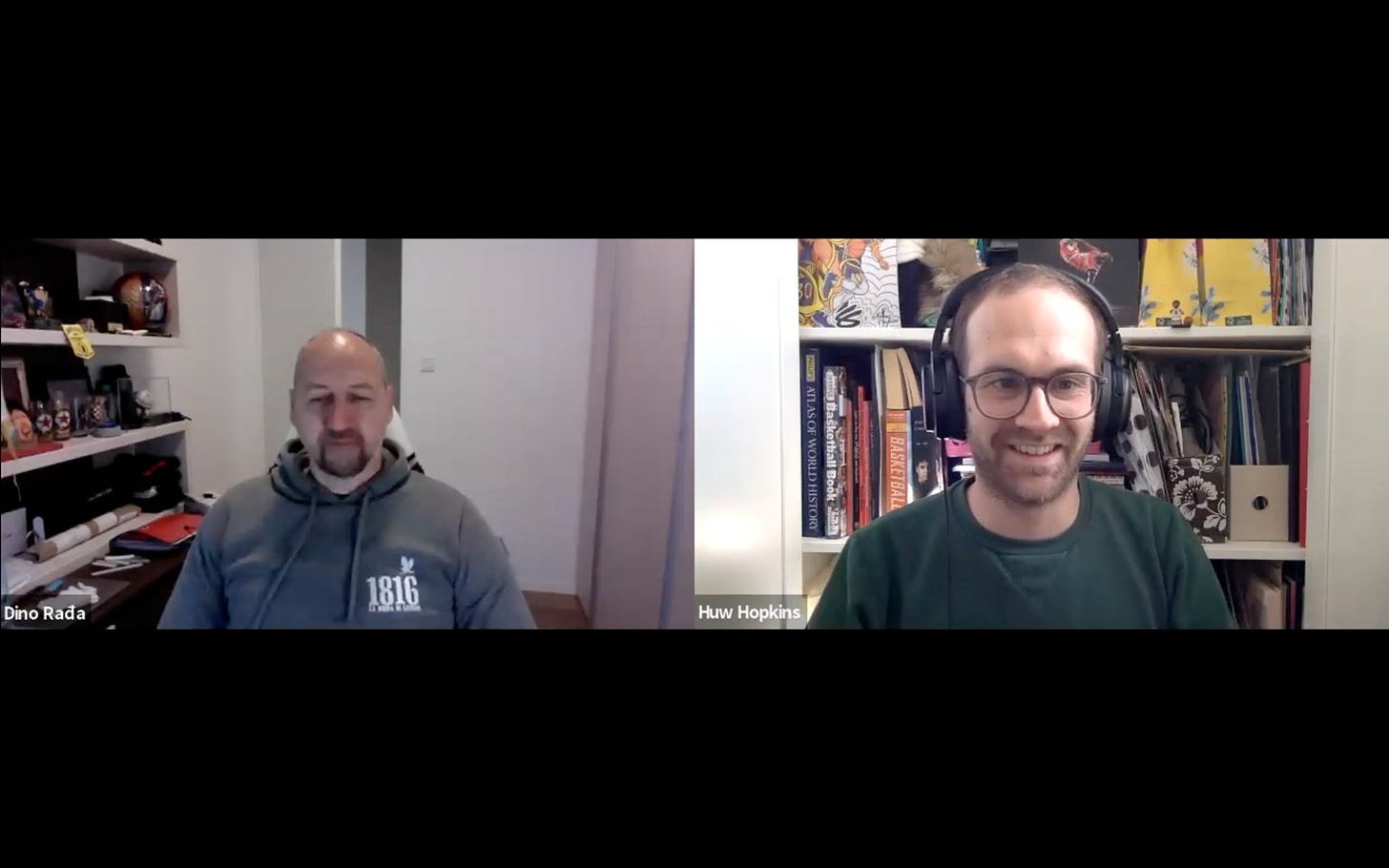“I just feel lucky that I was born into that generation of extraordinary players – Toni Kukoč, Dražen Petrović, Vlade Divać, Stojko Vranković – all those guys.”
This is Dino Rađa, and he’s underselling his own impact on the growth of basketball in Europe.
Most people know who Kukoč is, thanks to his role on the Chicago Bulls second three-peat – and, more recently, his subsequent involvement with The Last Dance documentary.
Others will be aware of Divać, but more recently they will just know of his incompetence in creating a roster with the Sacramento Kings. And some will remember Petrović – his early death and elite talent, even when transitioning to the NBA, helped secure a legendary status on the New Jersey (and now Brooklyn) Nets that his blue number 3 jersey is a must-have for collectors.
But other names from that Yugoslavia team – which won a FIBA World Cup in 1990 and a silver medal at the 1988 Olympics that caused the United States to change the way it approached the Games – and later Croatia and Serbia, set a course that many Europeans have since followed.
“You have to be lucky to be born at the same time. But also I’m very proud of being part of the generation that changed basketball worldwide, because when we started beating the Americans, they realised it’s not going to be enough the way we are doing it. Not only did the assemble the Dream Team but also they realised that we can play – ‘let’s have them in the NBA’.”
Rađa arguably never reached star status in the NBA. Many European talents during that era were recognised late and spent most of their career playing internationally, but that wasn’t the case for Rađa. He was wanted by the Boston Celtics in 1989, but there were political issues, not being allowed to leave Yugoslavia, and then being offered a salary in Virtus Roma that eclipsed what the Celtics were offering. He could have been the perfect bridge from the Larry Bird dynasty to a new group – especially after the loss of elite draft pick Len Bias before he played a game – but by the time Rađa arrived, the core had gone and the franchise was building from nothing.
Still, Boston welcomed him with open arms. “They have a saying in Boston,” he said. “Once a Celtic, always a Celtic. I’ve been in Boston many times and every time I land in the city I have a smile on my face. They accepted me with love and I still have friends over there. It’s got great people, and is a great sporting nation.”
Despite a short NBA career during a down period in franchise history – the team never won more than 35 games during his time there – most Celtics fans still speak about the European legend. What caught Rađa by surprise, however, was that new fans are appreciating his brief stint in the league.
On NBA2K, especially mobile card games, Rađa is a useful player to have. His basic box score stats of 16 points, 8.4 rebounds, nearly 2 assists and more than 1 block per game are useful. And it is making an impact on yet another generation. Without Rađa and his international colleagues in the early 1990s, we might not have had Dirk Nowitzki, Manu Ginobili, Yao Ming or Andrew Bogut, and that would have had a knock-on effect to this current crop of top tier NBA talent. Imagine the league without Nikola Jokić, Luka Dončić and Giannis Antetokounmpo.
WATCH THE FULL INTERVIEW BELOW
Rađa can’t believe the impact he is still having, even on people who weren’t born by the time he retired.
He said: “Kids come to me saying ‘congratulations, you had a great career’. Back then there was no media coverage like it is today and it was much harder to see everything. Today, five minutes after each game, you have all the highlights on social media, and it’s much easier to know everything about someone.
“I’m proud of my career. I think it was great. I’d repeat it again in a heartbeat.”
Discussion about this post
No posts




